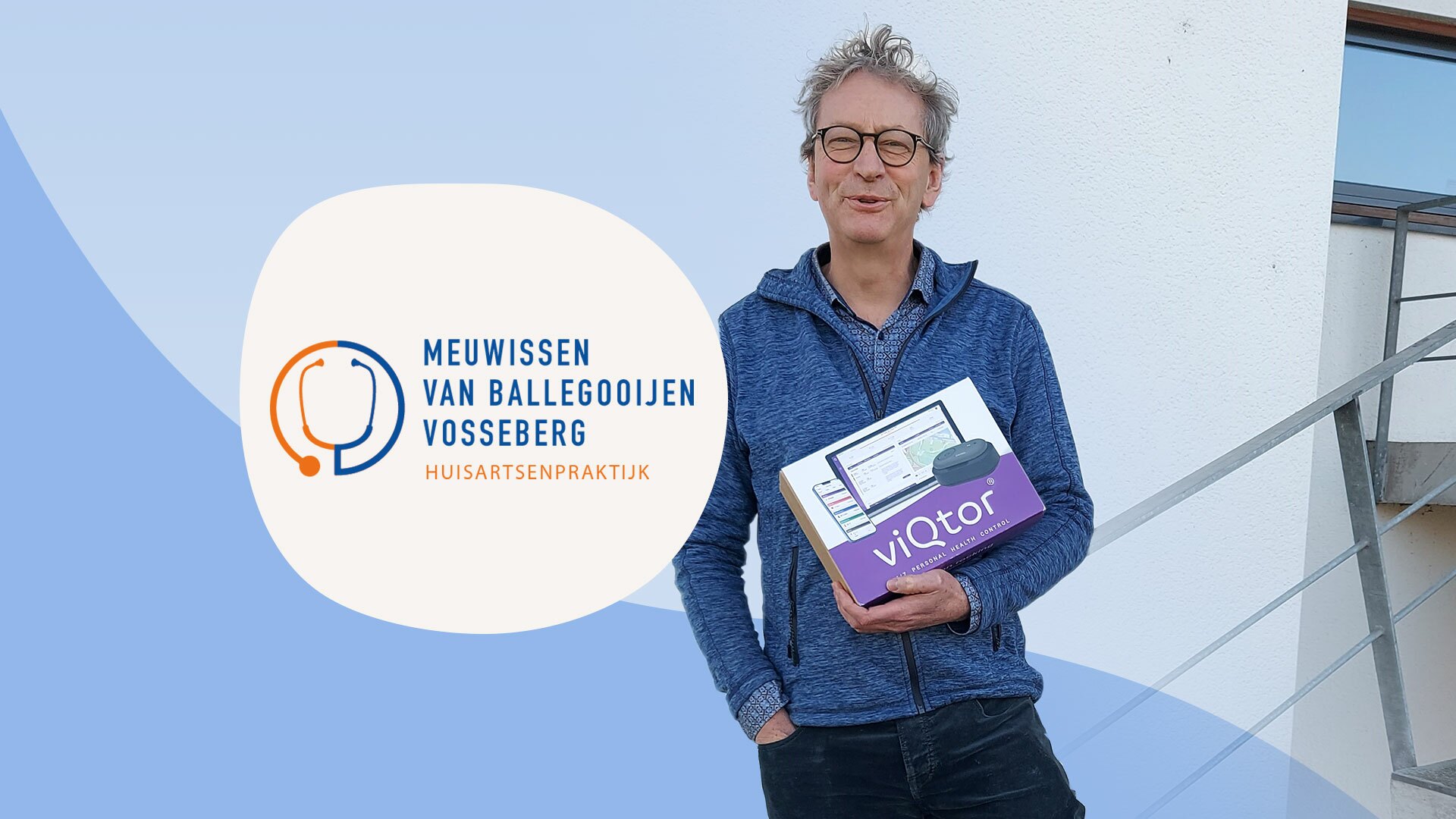Update on our living labs and studies
We are fully engaged in studies and living labs in which we test the use of viQtor for a specific target group; in a specific situation, together with clinical partners. This results in very valuable information on the basis of which we can further develop viQtor and on the basis of which the clinical partners get a better picture of how and where monitoring can add value in their operational processes and for their patient target group(s).
Study COPD patients at GPs
In April, we completed a study with GP practice Meuwissen van Ballegooijen' in Wageningen. The results of this study are currently being analysed.

In this study, five COPD patients were monitored in their home environment for eight weeks with viQtor with the aim of detecting health deterioration. During this study, the following vital signs were measured continuously: SpO2, heart rate, skin temperature and activity. In addition, the CCQ (COPD Control Questionnaire) was administered weekly and changes in medication use were tracked. This allowed the subjective data (how the patient felt) to be compared with the objective data (the measured vital signs). The research question of this study was whether health deterioration can be detected in COPD patients with the viQtor before they actually feel ill, for example by a drop in Spo2 combined with an increase in heart rate. This is important because further health deterioration in COPD patients can lead to hospitalisation, ultimately leading to more patient discomfort and higher healthcare costs.
First results
During the study, 2 of the 5 participating patients got an infection.
For the study outcome very interesting if and to what form and extent this is visible in the measured vital signs of these patients.
The first outcomes show that the variability of SpO2 increases with deterioration of the condition or health of these patients. We also saw decreases in SpO2 values. In another patient, a lower SpO2 value was measured at night possibly indicating sleep apnoea. This patient is now being referred to a sleep centre to clarify this.
We cannot draw any firm conclusions based on this small group of patients, but the results are still promising.
Follow-up studies
We are currently starting more and larger studies with academic partners such as Radboudumc (Nijmegen), LUMC (Leiden), ErasmusMC (Rotterdam) and possibly also UMCG (Groningen) in which we will test new research questions. In this way, we are working on clinical validation of the use of viQtor for various use cases (patient groups in particular situations) in practice.
More on that next time.